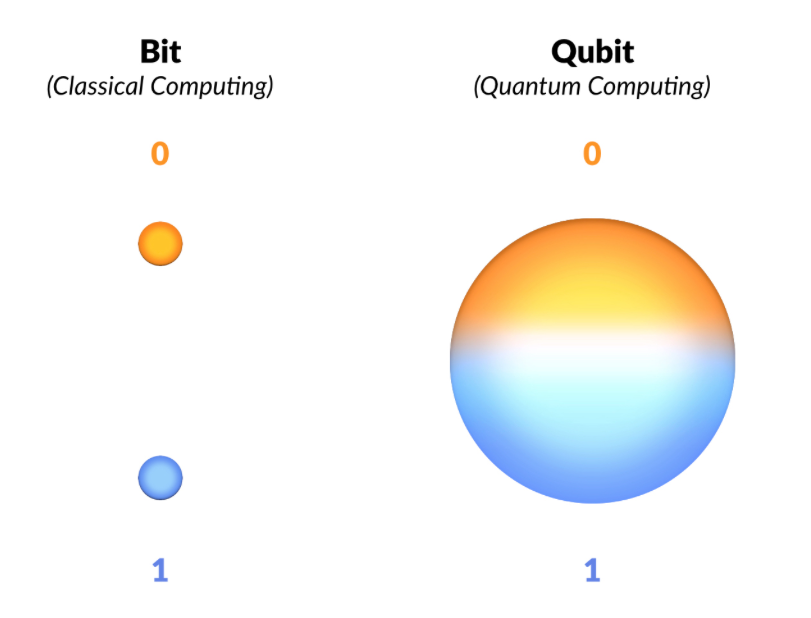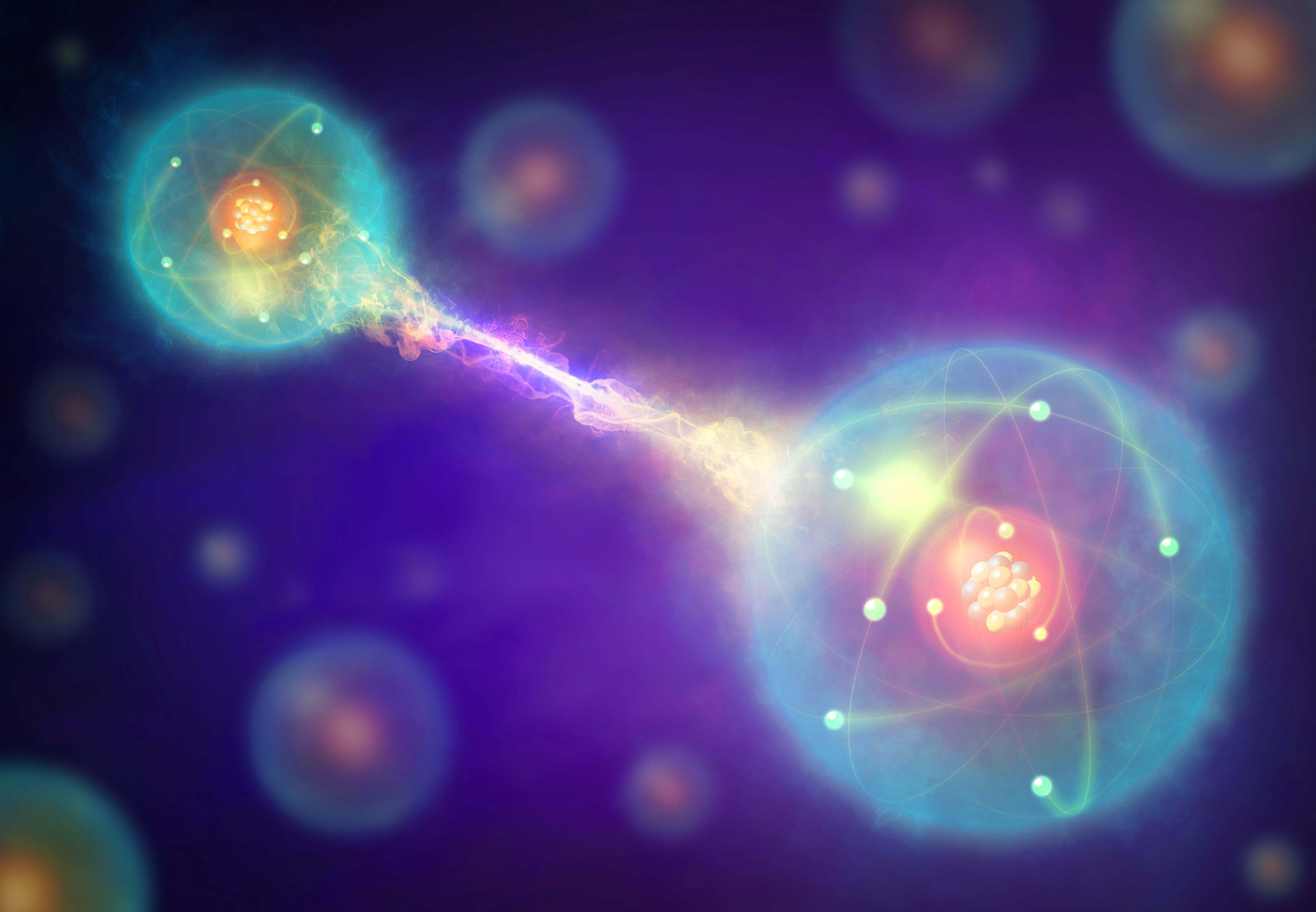Entanglement and superposition give quantum computing its esoteric capabilities.
Through unrivaled processing power, quantum computers could transform the field of medicine, break encryption, and revolutionize communication and artificial intelligence. Physicists in the 1980s developed the idea of manifesting the counter-intuitive properties of quantum mechanics into a computer, whose raw power could perform mathematical feats unachievable by using non-quantum machines.
In 2019, Google was the first company to demonstrate quantum supremacy—a quantum computer outperformed a traditional one. The company used, as John Preskill of the California Institute of Technology proclaims, a “Noisy, Intermediate-Scale Quantum Computer” (NISQ) machine to perform in minutes a calculation that would have taken the world’s fastest supercomputer more than 10,000 years. In addition to Google, companies such as IBM and Microsoft are racing to develop quantum computers. But what exactly is quantum computing, and how does it work?
To encode information, our modern-day computers use bits, a stream of electrical or optical pulses representing ones (on) or zeros (off). Activities like using Zoom to browse the web can be simplified to a (very) long string of these binary digits. This system, however, fails to represent how the universe works. In nature, things are not simply binary; they often fluctuate between states. This limitation means that classical computers often fail to deal with uncertainty, especially when completing tasks such as selecting the best performing stock portfolio.
In contrast, quantum computers use quantum bits, or qubits, which are typically subatomic particles such as electrons or photons. Rather than just being on or off, qubits can also be in a “superposition” —where they’re both on and off at the same time, or somewhere in the middle.

Take, for example, a spinning coin. After the coin stops spinning, it either lands on heads or tails. While spinning, the coin has a probability of landing on either heads or tails. Superposition is like the spinning coin because it is the ability to simultaneously be in multiple states—classical computers don’t have this power and instead can only remember heads or tails. A practical application of superposition is finding the path through a maze. A regular computer will try every single branch in turn, ruling them out individually until it finds the right path. A supercomputer can go down every path of the maze at once because it can deal with uncertainty.
The other salient aspect of qubits is their ability to become “entangled.” Entanglement refers to the inextricable link between qubits, with two members of a pair existing in a single quantum state. Even if two qubits reside at opposite ends of the universe, changing the state of one of the qubits will instantaneously change the state of the other.

No one knows why or how entanglement works—Einstein famously described it as “spooky action at a distance”—but scientists know that superposition and entanglement give quantum computers their unmatched power. In a normal computer, while doubling the number of bits doubles its power, adding a few qubits to a quantum machine produces an exponential increase in its number-crunching ability, due to the instant nature of entanglement.
Accordingly, quantum computers excel at crunching a large number of combinations because they can calculate them simultaneously. Such power opens the door to completing tasks that even the best supercomputers simply cannot do due to their reliance on binary bits. Quantum computers could thus rapidly accelerate the development of artificial intelligence, improve weather forecasts, analyze more complex molecules to potentially find a cure for Alzheimer’s, and model the interactions between atoms and molecules: using quantum computing to understand quantum physics.
Cryptography is also a major application: as of now, a lot of encryption systems rely on factoring large numbers into prime numbers. Although classical computers struggle to break down numbers, quantum computers can do so early. However, quantum encryption keys could provide an unbreakable bulwark against hacking. Because they rely on the uncertainty principle, the idea that you cannot measure something without influencing the result, they could never be stolen or copied.
Banks have already started embracing this cutting-edge technology because many financial calculations boil down to optimization problems, an area that quantum computers excel at. Quantum pundits hope their machines will boost profits by accelerating asset pricing, creating better-performing portfolios, and making machine-learning algorithms more accurate. A study by BBVA, a Spanish bank, concluded in July that quantum computers could boost credit-scoring, spot arbitrage opportunities, and accelerate a “Monte Carlo” simulation, a model often used to predict the likely behavior of financial markets. Such power would come from superposition, which provides faster computational power while predicting every possible outcome.
Although such results may be promising, acquiring hardware still proves a limitation. For now, the field only has small, unstable devices, capable of performing calculations for only tiny fractions of a second before their delicate quantum states break down, a process called quantum decoherence. Made using physical systems, such as the spin of an electron or the orientation of a photon, qubits are extremely sensitive to interference, and almost anything can knock them out of the delicate state of superposition. Quantum computers have to be kept isolated from any electrical interference (random unwanted electrical signals) and chilled down to close to absolute zero (colder than outer space). As of now, the best quantum computers have about 50 qubits, making them extremely powerful, but also with really high error rates.While quantum computers are powerful, they are also unreliable. Scientists could take quite a few years to fully harness quantum computers’ potential—especially considering the lack of skilled researchers in the field. You probably will not ever own a device with a quantum chip, but if scientists can master the technology, it could change the way we think about science, cryptography, finance, and so much more. For now, the race to develop a quantum computer continues.
– Andrew Zhao
Image Sources

